
VISIBLE forward progress at the grand-prix level our sport is defined exclusively by speed records and foiling appendages, but meaningful innovation can also enter the scene in an unassuming manner. Small modifications aggregate over time and, when you take a step back, you realize that the system bears little resemblance to its former self. This is certainly the case with modern-day headsail trimming systems. What was once a metal track running along the sheerline for sheeting low-aspect, stretch-prone headsails is now typically a floating low-friction ring with three-dimensional controls for trimming high-aspect, high-modulus headsails.
Walk the docks of an ORC regatta, a one-design championship, or even a beercan race and you will notice how many boats are now equipped with some version of a floating headsail lead. With the broadened range of lead positioning available and the ability to make fine adjustments, knowledgeable trimmers can contribute substantial performance gains to any boat they step onto. Understanding the proper balance of foot depth and leech twist to achieve target performance numbers is, of course, the first step toward accessing these new gears. But knowing when to stray from the perfect setup in order to power through asymmetric chop, hold a tight lane off the start line, split low and fast out of a crowded leeward mark, or extend from a closely trailing boat on the offset leg will set you apart from the crowd of average trimmers. Let's take a look at each axis of lead positioning and its effect on the sail.
FORE AND AFT: OPTIMIZING THE LONGITUDINAL JIB-LEAD POSITION
This story is from the {{IssueName}} edition of {{MagazineName}}.
Start your 7-day Magzter GOLD free trial to access thousands of curated premium stories, and 9,000+ magazines and newspapers.
Already a subscriber ? Sign In
This story is from the {{IssueName}} edition of {{MagazineName}}.
Start your 7-day Magzter GOLD free trial to access thousands of curated premium stories, and 9,000+ magazines and newspapers.
Already a subscriber? Sign In
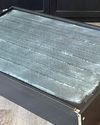
Tips for More Successful Epoxy Projects
That have nothing to do with epoxy mixing or application techniques
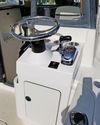
Auxiliary Rear Station Build
From past fishing experiences, I've learned that quick changes in speed and direction are often required when retrieving a hooked fish.
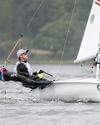
TARGETED PERFORMERS
Defending their title at the 420 Youth Worlds in July, Freddie Parkin and Asher Beck were on a roll-until they weren't.
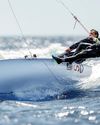
BALANCE ON THE PINNACLE
The path to gender equity in the Olympics has been a long and twisted one, but when the sailors assemble in Marseille next year, we'll finally see what's been a long time coming.
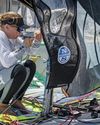
SIMPLE STEPS TO CONSISTENT SPEED
Boatspeed is the magic ingredient for winning races because we can get away with bad decisions if we are fast, but we can't make good choices if we're slow.
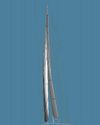
THREE-DIMENSIONAL JIB-LEAD ADJUSTMENTS
Floating jib leads give trimmers more dynamic control of the headsail profile.
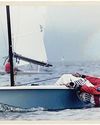
BETTER TOGETHER
Success over three decades comes down to making it meaningful.
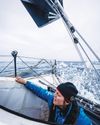
JUSTINE THE MACHINE
This self-effacing Swiss sailor has-in her quiet and understated way become one of the stars of offshore ocean racing in recent years, whether as part of a winning crew in The Ocean Race or building her credentials as a top-class solo racer.
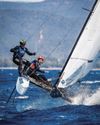
THE MULTITASKING MULTIHULL MOM
Competing in Olympic sailing's most challenging discipline is one thing, but doing so with a tyke in tow takes the campaign hustle to a higher level.
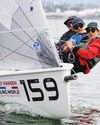
CONNECTED COAST TO COAST
From sunny St. Pete to historic Marblehead, the 34th edition of the Regatta Series linked sailors and friends across the country, with a few new twists.